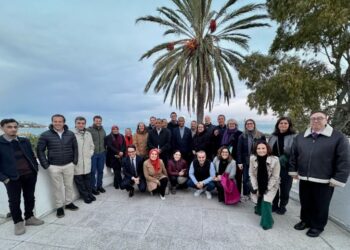US Duties on European Seafood, a Threat to the Seafood Industry – The Trump administration is considering the introduction of new 25% tariffs on agri-food products from the European Union, and the seafood sector is among those likely to suffer the most significant repercussions. According to an analysis by RaboResearch, edited by Barend Bekamp and Hosang Wu, the repercussions of this protectionist policy could heavily affect companies and workers in the sector, reducing the competitiveness of European seafood in the United States.
One of the central elements of the study concerns Norwegian salmon, which, although originating in Norway, is often processed within the European Union before being exported to the US. The processing and packaging of this product takes place in several European countries, contributing to the creation of added value and employment in the fish processing sector. However, with the introduction of US tariffs, the market could suffer a major setback. The most immediate risk is that Norwegian producers will decide to bypass the EU altogether and send salmon directly to the US, thus avoiding tariffs. This scenario would undermine the role of the European processing and export chain, with direct repercussions on plants and employment.
The effect of the tariffs would not only be limited to Norwegian salmon
The US could also decide to increase imports of fish products from countries not affected by the tariffs, such as Canada and Chile, further reducing the space for European exports. The seafood processing and distribution industry risks facing a drastic drop in demand, with knock-on consequences throughout the supply chain. Add to this the possibility of increased domestic seafood production in the US, which could become more competitive with European products, and a complex scenario looms in which EU seafood risks losing an important slice of the US market.
Italy, with its strong ties to the seafood sector and seafood processing, would not be immune to these dynamics. Italian companies export a variety of seafood products to the US, including smoked and processed salmon, canned fish and shellfish prepared for the foreign market. The real risk is that the imposition of duties will make these products less attractive to American importers, pushing them to turn to suppliers in other countries. Such an important market, where Italian products have always had a strong appeal, could suddenly become hostile for Italian companies, putting turnover and jobs at risk.
Not indifferent challenges lie ahead for the Italian fishing sector. Some companies might try to absorb the costs of duties by reducing their margins, but this strategy is risky and difficult to sustain in the long run. Others might try to diversify their markets, shifting part of their exports to Asia or the Middle East to compensate for any losses in the US. A more structural alternative could be to open processing plants directly on US soil, thus avoiding the imposition of tariffs, but this would require huge investments and a profound reorganisation of production.
The repercussions of the US tariffs, however, would not stop at the fish sector alone
A trade war between the European Union and the United States could have cascading effects on the entire agri-food trade, with the EU retaliating against strategic American products such as soya, which is widely used in European farming and aquaculture. The possible price increase of raw materials imported from the US could also impact the feed production sector, with consequences for the entire food chain.
In this scenario of great uncertainty, European and Italian fishing companies will have to be ready to rethink their strategies to remain competitive. The game is being played on several fronts, from trade diplomacy to industrial investments and the ability to find new market outlets. If tariffs become a reality, the EU seafood sector will have to face one of the most difficult challenges in recent years, trying to maintain its role in global trade without losing the added value of European processing. Is Italian seafood ready to defend itself against this new tariff storm?
US duties on European seafood, a threat to the seafood supply chain







